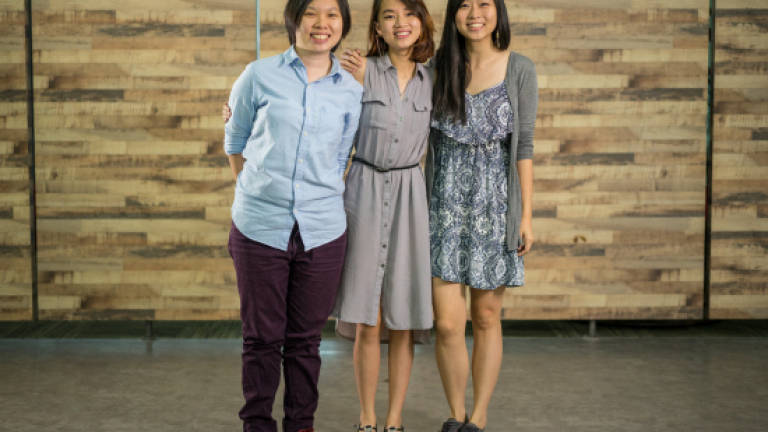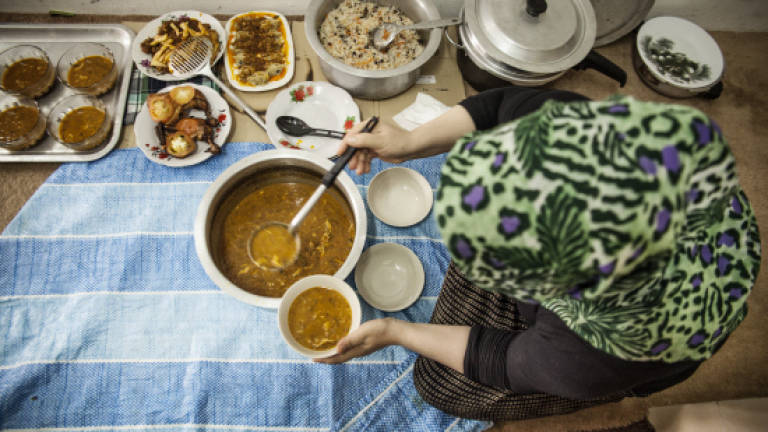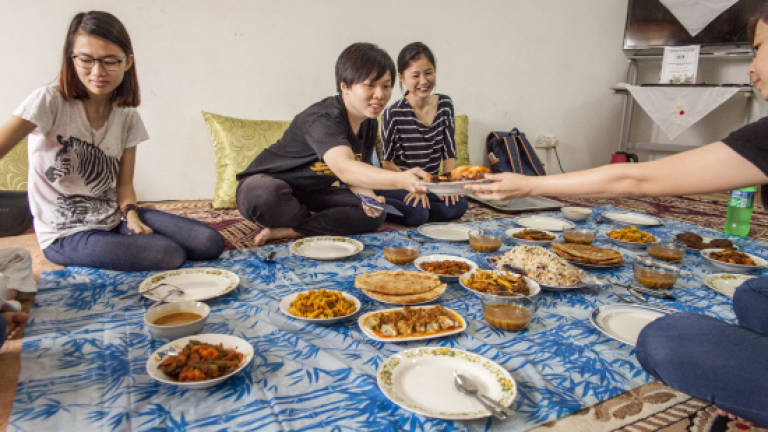The bigger Picha



GIVE a man a fish and you feed him for a day; teach a man to fish and you feed him for a lifetime.
In a quest for a sustainable form of help for refugees in Malaysia, three young ladies formed The Picha Project a year ago. Kim Lim, Lee Swee Lin, and Suzanne Ling – who met while volunteering for a project of the same cause – are creating job opportunities via The Picha Project for marginalised refugees.
By enabling the latter to cook and sell their food, they will be able to achieve a better quality of life and put their children through school. theSun spoke to Lim and Lee to get the lowdown.
Tell us more about the origins of ell us more about the origins of The Picha Project.
Kim Lim (KL): Four years back, we interned in a refugee learning centre. There, I was teaching music while Suzanne and Swee Lin taught English. Along the way, a lot of the kids had to drop out of school because of financial problems. To better investigate, we made visitations to understand why.
We saw a big financial problem there. Most of them cannot work or the kids had to support their families. Some needed to stay home and take care of their younger siblings when their parents go to work, so they had to drop out of school. At the same time, we knew that they cook for their families. So we created a platform for them to showcase their cooking skills to the public – in the form of catering – and that’s how The Picha Project came to be.
What drives you to help these hat drives you to help these marginalised people?
KL: To see the changes made, especially in the first family we helped. Before they had such financial support, it was only the husband working. They live in a shoplot with two other families, each family to a room. It wasn’t pleasing to see their living and eating conditions, as we are all very privileged.
When Ganu started working with us, it enabled her to send her kids to school, get better stationeries, and put better food on the table. Of course, there are other families with different stories. They live in different conditions and need different assistance. We want to see the change.
Swee Lin (SL): I guess it’s almost the same as when we see how privileged we actually are. We live here with an identity, we can access higher education, and we can work. It feels very normal but for most of them, it’s quite hard. As a refugee here, they cannot work and their kids cannot go to school. They have no identity here, so if they go out of their homes, it’s quite dangerous. We saw how they live and eat. They’d just eat white rice with water. That’s why we wanted to try and sell their food. They get to earn a living, and people get to eat their home country’s cuisine, so why not?
How do you decide which family to ow do you decide which family to hire under The Picha Project? ire under The Picha Project?
KL: First criterion; they would have to be living below the poverty line, which is less than RM1,000. Secondly, we’d try their food. We’re not saying that we bring them in only if their food is excellent. If their food is not so good, we’ll probably find a trainer to work with them.
Third criterion is their attitude, and fourth would be the cleanliness of their kitchens. Most of them do keep up with the standards. If their kitchens are not well equipped, they will work on it so that they can get on board. We also ensure that they get typhoid jabs, in line with the Ministry of Health’s procedures.
TRIVIA
Favourite cuisine from The Picha Project
SL: Burmese.
KL: Afghanistan.
Dream destination
SL: Greece.
KL: Iceland.
In their free time
SL: Chill out and have me-time.
KL: Watch movies.
Best dish
SL: Sunny side up egg.
KL: Tomato soup.